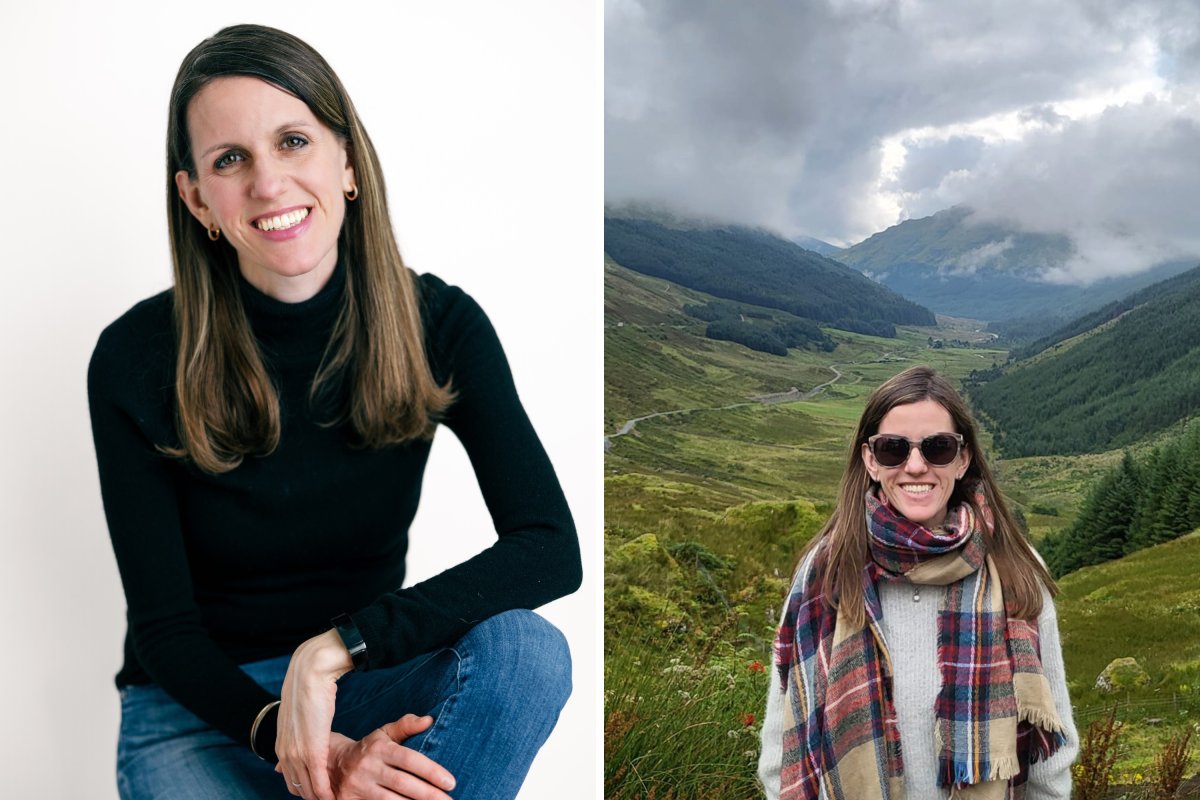In early 2024, I found myself staying up late at the computer, night after night, scrolling through photos of women's naked breasts. I'd recently started dating women for the first time, but I wasn't looking at dating profiles. I was looking at pictures of reconstructive surgery.
Specifically, I was trying to decide if I wanted to have reconstructive surgery. I was scheduled for a double mastectomy in two weeks, following a diagnosis of early-stage but aggressive breast cancer. "Well, the breast is definitely a goner," my surgeon had announced cheerfully when I first met with her, examining my ultrasound results.
I was glad not to have to choose between mastectomy and lumpectomy, not to have the option of an easier surgery but a higher rate of recurrence. It would have been too hard to make the choice.
It was hard enough choosing reconstruction—"Going flat" was an easier recovery, and implants involved at least two surgeries up front, plus additional surgeries to replace them ten, and then 20, and then 30 years down the line.
My new "breasts" would have no sensation, since mastectomy involves severing all the nerves in the chest. They wouldn't look great without clothes on—they'd have scars, and they might be uneven, though after nursing my son for a year, my own breasts had ended up droopy and uneven too. Still, they were mine, and I felt connected to them, in a way I couldn't imagine feeling connected to two bags of silicone on my chest.
And yet. I wasn't sure I was ready never to have breasts again. I wasn't sure I was ready to be a woman in the world without ever having breasts again. I was 42—old enough not to see my physical self as the measure of my value, but young enough to still occasionally feel hot. I had a pink, low-cut swimsuit that I'd found at my local thrift store, and I liked leaning back, in my suit and my sunglasses, and watching my son splash his way across the community pool.
I wasn't necessarily interested in dating men—I had a newfound queerness that I was exploring, as well as a complicated situation with my ex-husband. He was my cancer support system, which had come to include not only squeezing my hand while I cried in my surgeon's beige-toned waiting room, but also taking each other's clothes off a few nights a week.

But I did enjoy being able to draw men's eyes. I wanted to liberate myself from the male gaze, at least in theory, but in practice, the male gaze had been a reliable source of pleasure for 25 years or so. I wasn't sure I was ready to give it up—especially at a time when cancer would be taking away so many other things.
Being a woman in the world has always involved a certain measure of pain.
Our femininity is measured by our ability to look good and to bear children, but also by our willingness to suffer in order to do those things. I'd been reluctant to have a child, in part because I'd been reluctant to suffer, but ultimately the suffering had been part of what convinced me to do it. It had felt like a rite of passage, like it would make me as worthy as the other strong women with sagging breasts and wrinkled stomach skin.
And after my son barreled his way into the world one February morning, I did feel empowered. He was born on the tile floor of my tiny Hoboken bathroom, because I hadn't been in enough pain to leave for the hospital until I'd suddenly been in way too much. When I met other new moms for coffee, juggling our lattes and our intermittently wailing infants, I enjoyed trading birth stories the way soldiers trade stories of battle. The midnight contractions, the ambulance rides, the perineal stitches. None of it had been easy, but we had survived it.
Had I been unable to get pregnant, I would have been happy to adopt. I have four adopted siblings, and I grew up knowing that loving a child had nothing to do with whether that child had traveled down your birth canal. But had I chosen not to get pregnant, I would have felt "less" than the women who did. I don't think this is right, but it's true. I get a lot of satisfaction from measuring up to other people's expectations.
There are many women who choose not to bear children. Many women choose not to reconstruct their breasts. In addition to looking at pictures of reconstruction, I joined Facebook groups called "Fierce, Flat, and Fabulous" and looked at pictures of women confidently baring their flat chests on top of mountains, at the finish lines of races, in canoes. "Went flat and never regretted it," they declared. "Love the freedom!" "No more boob sweat!"
Part of me wanted to be one of these women. Part of me wanted to able to fill out a bathing suit top. Most of me just wanted not to have cancer—to not be trying to decide on what kind of woman I was going to be for the rest of my life, while also wondering whether "the rest of my life" was even a thing that would happen.
I went back and forth for weeks. I could hear the frustration in the office manager's voice when I called daily to ask my plastic surgeon "just one more question." But I ended up scheduling the reconstructive surgery.
I would spend an extra three hours under anesthesia while the plastic surgeon inserted tissue expanders, stitching them to the inside of the skin. Over the next few months, he would slowly inflate these tissue expanders with saline until they reached the size of my actual breasts, which had by then been burned up in a medical waste incinerator.
Then, once the skin had been stretched, he'd do a second surgery where he'd swap out the tissue expanders for silicone implants. The scars on each side would look like anchors, cutting a line across the place where my nipples had been.
I didn't feel great about any of this. I didn't know if I was doing the reconstruction because I was brave, or because I was scared. There were no good choices. Being a woman in the world means there are no good choices a lot of the time.
I'd like to be kind to myself. I'd like to not feel weak if I decide that I don't want to put myself through pain in order to be like other people.
I'd like to not feel weak if I decide that I do want to be like other people, because it's easier, or because validation feels good. I'd like to know the difference between what I really want, and what I want because I feel like I'm supposed to.
I'd like to know that it's okay that—even after being a woman in the world for 42 years—I don't know that yet. Mostly, I'd like to know that being a woman in the world is hard—and that if I'm managing to be a woman in the world, it means I'm strong, no matter what. I don't know that yet either.
I'm on the other side of the surgery now. Theoretically, I'm on the other side of the cancer, though I've still got years of hormone-blocking drugs with a list of side effects like cataracts and blood clots, and brain fog.
I don't think I'll ever not be scared, but there are days where I feel like I might be able to look back on this mostly as a hard few months, rather than as an anchor-shaped line that cut my life into before and after.
My chest feels like it's been injected with Novocaine all the time. I don't like having anyone touch it. After I shower, I dry myself carefully, looking in the mirror, because I can't tell if there are drops of water left on my skin. Then I hang up the towel and spend a moment looking at my scarred, rippled breasts, trying to feel like they are beautiful. I don't. I keep trying.
Lia Romeo is a playwright and novelist. Her play, STILL, starring Jayne Atkinson and Tim Daly, is running off-Broadway in April and May.
All views expressed in this article are the author's own.
Do you have a unique experience or personal story to share? See our Reader Submissions Guide and then email the My Turn team at myturn@newsweek.com.
Uncommon Knowledge
Newsweek is committed to challenging conventional wisdom and finding connections in the search for common ground.
Newsweek is committed to challenging conventional wisdom and finding connections in the search for common ground.
About the writer
Lia Romeo is a playwright and novelist. Her play STILL, starring Jayne Atkinson and Tim Daly, is running off-Broadway in ... Read more
To read how Newsweek uses AI as a newsroom tool, Click here.








